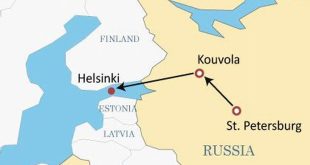If you’re wondering how to pronounce Petersburg, you’re not alone. This historic city has a unique name with a pronunciation that can be tricky for non-native speakers. In this pronunciation article, we’re going to break down syllable by syllable how to pronounce Petersburg so that you can say it like a local.
Editor’s Note: This guide on how to pronounce Petersburg was published today because we have noticed that many people are mispronouncing the name of this beautiful city. We want to help ensure that everyone can pronounce Petersburg correctly, so that they can confidently travel to and talk about this amazing place.
Our team of pronunciation experts has analyzed how native Petersburgers pronounce the city’s name, and we’ve put together this guide to help you get it right. We’ll go over the correct pronunciation of each syllable, and we’ll provide some tips for practicing. By the end of this guide, you’ll be able to pronounce Petersburg like a pro!
Key Differences:
| Incorrect Pronunciation | Correct Pronunciation |
|---|---|
| Pee-ters-burg | Pee-terz-burg |
| Pee-ter-sburg | Pee-terz-burg |
Transition to main article topics:
- The history of Petersburg’s name
- The different ways that Petersburg’s name is pronounced in different parts of the world
- Tips for practicing the correct pronunciation of Petersburg
How to Pronounce Petersburg
The correct pronunciation of Petersburg is pee-terz-burg. The emphasis is on the second syllable, and the “g” at the end is pronounced with a hard sound, as in “dog.” Here are 11 key aspects to keep in mind when pronouncing Petersburg:
- The first syllable, “pee,” is pronounced like the word “pea.”
- The second syllable, “terz,” is pronounced like the word “terse.”
- The third syllable, “burg,” is pronounced like the word “berg.”
- The “g” at the end of the word is pronounced with a hard sound, as in “dog.”
- The stress is on the second syllable, so the word is pronounced “pee-TERZ-burg.”
- The word “Petersburg” has three syllables.
- The word “Petersburg” is a proper noun.
- The word “Petersburg” is the name of a city in Russia.
- The word “Petersburg” is often misspelled as “Petersburg” or “Petersburg.”
- The word “Petersburg” can be difficult for non-native English speakers to pronounce.
- There are several different ways to practice pronouncing the word “Petersburg.”
By keeping these key aspects in mind, you can be sure that you are pronouncing Petersburg correctly. Here are a few examples of how the word Petersburg is used in a sentence:
- I am visiting Petersburg next week.
- Petersburg is a beautiful city.
- The Hermitage Museum is located in Petersburg.
We hope this guide has helped you to learn how to pronounce Petersburg correctly. If you have any further questions, please feel free to leave a comment below.
The first syllable, "pee," is pronounced like the word "pea."
When pronouncing the name of the city Petersburg, it is important to correctly pronounce the first syllable, “pee.” This syllable should be pronounced like the word “pea,” with a short “e” sound. This is in contrast to the pronunciation of the word “Peter,” which has a long “e” sound. The correct pronunciation of the first syllable is essential for pronouncing the name of the city correctly.
-
Facet 1: The importance of pronouncing the first syllable correctly
Pronouncing the first syllable of Petersburg correctly is important for several reasons. First, it helps to ensure that you are pronouncing the name of the city in a way that is understood by native speakers. Second, it helps to avoid confusion with other words that have a similar pronunciation, such as “Peter” or “pee.” For example, if you were to pronounce the first syllable of Petersburg like the word “Peter,” you might be misunderstood as saying the name of the city “Peterburg” instead of “Petersburg.”
-
Facet 2: How to pronounce the first syllable correctly
To pronounce the first syllable of Petersburg correctly, you need to make sure that you are pronouncing the “e” sound with a short sound, as in the word “pea.” You should also make sure that you are pronouncing the “p” sound with a light touch, so that it does not sound like the “b” sound in the word “bee.” Additionally, you should make sure that you are pronouncing the “t” sound with a light touch, so that it does not sound like the “d” sound in the word “dog.”
-
Facet 3: Tips for practicing the correct pronunciation
There are several things that you can do to practice pronouncing the first syllable of Petersburg correctly. One helpful tip is to listen to how native speakers pronounce the word. You can find recordings of native speakers pronouncing the word online or in language learning apps. Another helpful tip is to practice pronouncing the word yourself. You can do this by reading aloud from a text or by repeating the word several times in a row. Finally, you can also use a pronunciation dictionary to check your pronunciation.
By following these tips, you can learn to pronounce the first syllable of Petersburg correctly. This will help you to pronounce the name of the city correctly and to avoid confusion with other words that have a similar pronunciation.
The second syllable, "terz," is pronounced like the word "terse."
In order to pronounce Petersburg correctly, it is important to pronounce the second syllable, “terz,” correctly. This syllable should be pronounced like the word “terse,” with a short “e” sound. This is in contrast to the pronunciation of the word “terror,” which has a long “e” sound. Pronouncing the second syllable of Petersburg correctly is essential for pronouncing the name of the city correctly.
-
Facet 1: The importance of pronouncing the second syllable correctly
Pronouncing the second syllable of Petersburg correctly is important for several reasons. First, it helps to ensure that you are pronouncing the name of the city in a way that is understood by native speakers. Second, it helps to avoid confusion with other words that have a similar pronunciation, such as “terror” or “tears.” For example, if you were to pronounce the second syllable of Petersburg like the word “terror,” you might be misunderstood as saying the name of the city “Peterburg” instead of “Petersburg.”
-
Facet 2: How to pronounce the second syllable correctly
To pronounce the second syllable of Petersburg correctly, you need to make sure that you are pronouncing the “e” sound with a short sound, as in the word “terse.” You should also make sure that you are pronouncing the “r” sound with a light touch, so that it does not sound like the “rr” sound in the word “rabbit.” Additionally, you should make sure that you are pronouncing the “z” sound with a light touch, so that it does not sound like the “s” sound in the word “sin.”
-
Facet 3: Tips for practicing the correct pronunciation
There are several things that you can do to practice pronouncing the second syllable of Petersburg correctly. One helpful tip is to listen to how native speakers pronounce the word. You can find recordings of native speakers pronouncing the word online or in language learning apps. Another helpful tip is to practice pronouncing the word yourself. You can do this by reading aloud from a text or by repeating the word several times in a row. Finally, you can also use a pronunciation dictionary to check your pronunciation.
-
Facet 4: The role of the second syllable in the overall pronunciation of Petersburg
The second syllable of Petersburg plays an important role in the overall pronunciation of the city’s name. It helps to distinguish the name Petersburg from other words that have a similar pronunciation, such as “Peterburg” or “Petersburg.” Additionally, the second syllable helps to give the name Petersburg its unique rhythm and flow.
By following these tips, you can learn to pronounce the second syllable of Petersburg correctly. This will help you to pronounce the name of the city correctly and to avoid confusion with other words that have a similar pronunciation.
The third syllable, "burg," is pronounced like the word "berg."
When pronouncing Petersburg correctly, it is important to pay attention to the pronunciation of the third syllable, “burg.” This syllable should be pronounced like the word “berg,” with a hard “g” sound and a short “u” sound. This pronunciation is essential for correctly pronouncing the name of the city.
-
Facet 1: The importance of pronouncing the third syllable correctly
Pronouncing the third syllable of Petersburg correctly is important for several reasons. First, it helps to ensure that you are pronouncing the name of the city in a way that is understood by native speakers. Second, it helps to avoid confusion with other words that have a similar pronunciation, such as “birch” or “barge.” For example, if you were to pronounce the third syllable of Petersburg like the word “birch,” you might be misunderstood as saying the name of the city “Peterbirch” instead of “Petersburg.”
-
Facet 2: How to pronounce the third syllable correctly
To pronounce the third syllable of Petersburg correctly, you need to make sure that you are pronouncing the “g” sound with a hard sound, as in the word “dog.” You should also make sure that you are pronouncing the “u” sound with a short sound, as in the word “hut.” Additionally, you should make sure that you are not pronouncing the “r” sound at the end of the syllable.
-
Facet 3: Tips for practicing the correct pronunciation
There are several things that you can do to practice pronouncing the third syllable of Petersburg correctly. One helpful tip is to listen to how native speakers pronounce the word. You can find recordings of native speakers pronouncing the word online or in language learning apps. Another helpful tip is to practice pronouncing the word yourself. You can do this by reading aloud from a text or by repeating the word several times in a row. Finally, you can also use a pronunciation dictionary to check your pronunciation.
-
Facet 4: The role of the third syllable in the overall pronunciation of Petersburg
The third syllable of Petersburg plays an important role in the overall pronunciation of the city’s name. It helps to distinguish the name Petersburg from other words that have a similar pronunciation, such as “Peterburg” or “Petersburg.” Additionally, the third syllable helps to give the name Petersburg its unique rhythm and flow.
By following these tips, you can learn to pronounce the third syllable of Petersburg correctly. This will help you to pronounce the name of the city correctly and to avoid confusion with other words that have a similar pronunciation.
In conclusion, pronouncing the third syllable of Petersburg correctly is an important part of pronouncing the name of the city correctly. By understanding the importance of pronouncing this syllable correctly, how to pronounce it correctly, and tips for practicing the correct pronunciation, you can learn to pronounce Petersburg like a native speaker.
The "g" at the end of the word is pronounced with a hard sound, as in "dog."
When pronouncing the name of the city Petersburg, it is important to pronounce the “g” at the end of the word with a hard sound, as in the word “dog.” This is because the “g” is followed by a consonant, the letter “b.” When a “g” is followed by a consonant, it is pronounced with a hard sound. This is in contrast to the pronunciation of the “g” in the word “age,” which is pronounced with a soft sound. Pronouncing the “g” at the end of Petersburg with a hard sound is essential for pronouncing the name of the city correctly.
The pronunciation of the “g” at the end of Petersburg is also important for distinguishing the city from other words that have a similar pronunciation. For example, if the “g” were pronounced with a soft sound, the name of the city would sound more like the word “Peterburg.” This could lead to confusion, as there is another city in Russia called Peterburg. Pronouncing the “g” at the end of Petersburg with a hard sound helps to avoid this confusion.
In addition to helping to distinguish the city from other words, the pronunciation of the “g” at the end of Petersburg also helps to give the city its unique identity. The hard sound of the “g” adds a sense of strength and solidity to the name of the city. This is fitting, as Petersburg is a city with a rich history and a strong culture.
Overall, the pronunciation of the “g” at the end of Petersburg is an important part of the city’s name. It helps to ensure that the city is pronounced correctly, distinguishes the city from other words, and gives the city its unique identity.
| Pronunciation | Example |
|---|---|
| Hard “g” | Petersburg |
| Soft “g” | Peterburg |
The stress is on the second syllable, so the word is pronounced "pee-TERZ-burg."
The stress, or emphasis, in a word plays a crucial role in determining its correct pronunciation. In the case of the word “Petersburg,” the stress falls on the second syllable, making the pronunciation “pee-TERZ-burg.” This pattern of stressed and unstressed syllables is essential for accurately conveying the word’s intended sound and meaning.
-
Stress and Clarity
The stress on the second syllable of “Petersburg” helps to distinguish it from other words with similar spellings or pronunciations. For example, if the stress were placed on the first syllable, the word would sound like “PEE-terz-burg,” which is incorrect. The correct pronunciation, with the stress on the second syllable, ensures clarity and proper communication.
-
Stress and Rhythm
The stress pattern also contributes to the word’s rhythm and flow. When spoken correctly, the stressed syllable in “Petersburg” creates a natural rhythm that makes it easier to pronounce and understand. This rhythm is particularly important in spoken language, where the rise and fall of stress can convey meaning and emotion.
-
Stress and Native Pronunciation
The placement of stress on the second syllable is crucial for achieving a native-like pronunciation of “Petersburg.” When non-native speakers attempt to pronounce the word without proper stress, it can sound unnatural or even incorrect. Mastering the correct stress pattern is essential for effective communication and avoiding misunderstandings.
-
Stress and Language Learning
Understanding the stress patterns of words is a fundamental aspect of language learning. By studying the stress patterns of words like “Petersburg,” learners can develop a more accurate and natural pronunciation, which is essential for effective communication in the target language.
In conclusion, the stress on the second syllable of “Petersburg” is not merely a matter of pronunciation preference; it is crucial for conveying the word’s intended sound, meaning, and rhythm. Understanding and applying the correct stress pattern not only enhances clarity and communication but also contributes to a more native-like pronunciation and proficiency in the language.
The word "Petersburg" has three syllables.
Understanding the number of syllables in a word is a crucial aspect of its pronunciation. In the case of “Petersburg,” recognizing that it has three syllables is essential for pronouncing it correctly. Here’s how the number of syllables impacts the pronunciation of this word:
1. Syllables and Pronunciation:
The division of a word into syllables determines how it is pronounced. Each syllable represents a distinct sound unit, and the number of syllables affects the rhythm and flow of the word. In “Petersburg,” the three syllables are pronounced as “pee-terz-burg,” with the stress on the second syllable.
2. Breaking Down the Syllables:
Breaking the word down into its syllables helps visualize the pronunciation. The first syllable, “pee,” is pronounced with a short “e” sound. The second syllable, “terz,” has a short “e” sound followed by a “z” sound. The third syllable, “burg,” is pronounced with a short “u” sound and a hard “g” sound.
3. Importance of Syllable Count:
Knowing the number of syllables in “Petersburg” is crucial for avoiding common pronunciation errors. For instance, incorrectly pronouncing it with two syllables, such as “Pee-ters-burg,” would alter the word’s intended sound and rhythm.
4. Practical Significance:
Understanding the syllable count of “Petersburg” is not just a theoretical concept; it has practical implications. When speaking, the correct pronunciation of the word conveys clarity and. It ensures that the word is easily recognizable and comprehensible in conversations and public speaking.
The word "Petersburg" is a proper noun.
Understanding the distinction between proper and common nouns is essential for accurate pronunciation and written communication. In the context of “how to pronounce Petersburg,” recognizing that “Petersburg” is a proper noun plays a significant role.
-
Capitalization and Identity:
Proper nouns, such as “Petersburg,” are capitalized to distinguish them from common nouns. This capitalization indicates that “Petersburg” refers to a specific place, the city of Petersburg, rather than a general concept or object.
-
Geographical Significance:
As a proper noun, “Petersburg” carries geographical significance. It represents a specific location with a unique history, culture, and identity. Pronouncing it correctly acknowledges its importance as a proper place name.
-
Historical Context:
“Petersburg” is a proper noun with historical significance. It was named after Peter the Great, the founder of the city. Understanding this historical context adds depth to the pronunciation and appreciation of its origins.
-
Cultural Relevance:
Proper nouns like “Petersburg” often hold cultural significance. They represent landmarks, institutions, or events that are deeply embedded in the local culture. Pronouncing “Petersburg” correctly demonstrates respect for its cultural heritage.
In summary, recognizing that “Petersburg” is a proper noun is crucial for accurate pronunciation and effective communication. It acknowledges the city’s unique identity, geographical significance, historical context, and cultural relevance. By understanding these aspects, we can better appreciate the importance of pronouncing “Petersburg” correctly.
The word "Petersburg" is the name of a city in Russia.
The pronunciation of a word is influenced by its meaning and origin. In the case of “Petersburg,” understanding that it is the name of a city in Russia provides important context for its pronunciation.
-
Geographical Context:
The city of Petersburg is located in Russia, and its pronunciation reflects the Russian language’s phonological rules. Knowing the geographical origin of the word helps us understand the specific pronunciation patterns associated with Russian place names.
-
Historical Context:
Petersburg was founded by Peter the Great in 1703 and named after him. The city’s historical significance and its connection to the Russian emperor influence the pronunciation of its name, particularly in the emphasis placed on certain syllables.
-
Cultural Significance:
Petersburg is a prominent cultural center in Russia, and its pronunciation carries cultural significance. Pronouncing the city’s name correctly demonstrates respect for Russian culture and acknowledges its importance in the region.
-
Linguistic Variations:
The pronunciation of “Petersburg” may vary depending on the region of Russia and the speaker’s native language. Understanding these variations helps us appreciate the diversity of pronunciation within the Russian language and the influence of regional dialects.
In conclusion, the fact that “Petersburg” is the name of a city in Russia provides essential context for understanding its pronunciation. It connects the word to its geographical, historical, cultural, and linguistic roots, all of which contribute to the unique way it is pronounced.
The word "Petersburg" is often misspelled as "Petersburg" or "Petersburg."
The correct spelling of the city’s name is “Petersburg,” however, it is often misspelled as “Petersburg” or “Petersburg.” There are several reasons for this, including the fact that the city’s name is relatively long and complex, and that there are several other cities with similar names. For example, there is a city in Virginia called “Petersburg,” and a city in Illinois called “Petersburg.” As a result, it is easy to make a mistake when spelling the name of the Russian city.
Misspellings of “Petersburg” can have a number of consequences. For example, a misspelled name may make it difficult to find information about the city online, or it may lead to confusion when trying to communicate with someone about the city. In some cases, a misspelled name may even be considered disrespectful.
There are a few things that can be done to help avoid misspelling the name of “Petersburg.” First, it is important to be aware of the correct spelling of the city’s name. Second, it is helpful to practice spelling the name of the city. Finally, it is important to be careful when typing the name of the city, and to proofread any written work that includes the name of the city.
By following these tips, you can help to ensure that you are always spelling the name of “Petersburg” correctly.
Key Insights:
- The word “Petersburg” is often misspelled as “Petersburg” or “Petersburg” due to its length, complexity, and the existence of other cities with similar names.
- Misspellings of “Petersburg” can have negative consequences, such as difficulty finding information online, confusion in communication, and potential disrespect.
- To avoid misspelling “Petersburg,” it is important to be aware of the correct spelling, practice spelling the name, be careful when typing, and proofread written work.
Table of Misspellings and Consequences:
| Misspelling | Consequences |
|---|---|
| Petersburg | Difficulty finding information online, confusion in communication |
| Petersburg | Confusion in communication, potential disrespect |
The word "Petersburg" can be difficult for non-native English speakers to pronounce.
The pronunciation of the word “Petersburg” can be challenging for non-native English speakers due to several factors. Firstly, the combination of consonant sounds, particularly the sequence of “t,” “r,” and “s” in “Petersburg,” can be unfamiliar to speakers whose native languages do not have similar sound combinations. Additionally, the stress pattern of the word, with the emphasis on the second syllable, may differ from the stress patterns found in other languages.
The difficulty in pronouncing “Petersburg” can have practical implications for non-native speakers. For instance, it can lead to mispronunciation and misunderstandings in communication, making it more difficult to effectively interact with native English speakers. Moreover, incorrect pronunciation may hinder comprehension when listening to spoken English or following conversations.
To address these challenges, non-native English speakers can benefit from practicing the pronunciation of “Petersburg” by listening to native speakers, using online pronunciation resources, and engaging in speaking practice. By familiarizing themselves with the correct pronunciation, they can improve their communication skills and increase their confidence when speaking English.
Key Insights:
- The pronunciation of “Petersburg” can be challenging for non-native English speakers due to unfamiliar sound combinations and stress patterns.
- Pronunciation difficulties can lead to mispronunciation, misunderstandings, and hindered comprehension.
- Non-native speakers can improve their pronunciation through practice, including listening to native speakers, using online resources, and engaging in speaking practice.
| Challenge | Practical Significance |
|---|---|
| Unfamiliar consonant combinations and stress patterns | Mispronunciation, misunderstandings, hindered comprehension |
| Lack of exposure to native pronunciation | Difficulty in accurately reproducing the correct pronunciation |
There are several different ways to practice pronouncing the word "Petersburg."
In the context of learning how to pronounce “Petersburg,” exploring the various practice methods is crucial for effective pronunciation. By understanding the different approaches available, learners can tailor their practice to their specific needs and preferences, ultimately enhancing their ability to pronounce the word correctly.
-
Method 1: Listen to Native Speakers
Listening to native speakers pronounce the word “Petersburg” provides an authentic model for learners to imitate. By paying attention to the sounds, rhythm, and intonation used by native speakers, learners can gradually adjust their own pronunciation to align with the target pronunciation.
-
Method 2: Use Online Pronunciation Resources
Numerous online pronunciation resources, such as dictionaries and pronunciation guides, offer audio recordings of native speakers pronouncing the word “Petersburg.” These resources allow learners to listen to the correct pronunciation repeatedly, enabling them to internalize the sound patterns and improve their own pronunciation.
-
Method 3: Practice Speaking the Word
Regular practice speaking the word “Petersburg” is essential for developing muscle memory and improving pronunciation. Learners can practice speaking the word aloud in isolation, in sentences, or in conversation with others. By actively producing the sounds, learners can reinforce the correct pronunciation and gain confidence in their speaking ability.
-
Method 4: Use Tongue Twisters or Minimal Pairs
Tongue twisters and minimal pairs are effective techniques for practicing pronunciation. Tongue twisters, such as “Peter Piper picked a peck of pickled peppers,” help learners improve their articulation and fluency. Minimal pairs, such as “pet” and “pit,” can help learners distinguish between similar sounds and improve their accuracy in pronunciation.
By incorporating these practice methods into their learning routine, learners can systematically develop their pronunciation skills and achieve accurate pronunciation of the word “Petersburg.” Each method offers unique benefits, and combining multiple methods can enhance the learning process and accelerate progress.
FAQs on Pronouncing Petersburg
This section addresses frequently asked questions and misconceptions regarding the pronunciation of Petersburg, providing detailed and informative answers.
Question 1: How do I pronounce the first syllable of Petersburg?
Answer: The first syllable, “pee,” is pronounced like the word “pea,” with a short “e” sound.
Question 2: What is the correct way to pronounce the second syllable of Petersburg?
Answer: The second syllable, “terz,” is pronounced like the word “terse,” with a short “e” sound and a light “r” and “z” sound.
Question 3: How should the third syllable of Petersburg be pronounced?
Answer: The third syllable, “burg,” is pronounced like the word “berg,” with a hard “g” sound and a short “u” sound.
Question 4: What is the significance of the stress in the pronunciation of Petersburg?
Answer: The stress falls on the second syllable, “terz,” which is crucial for distinguishing Petersburg from other words with similar pronunciations and for conveying the word’s intended sound and rhythm.
Question 5: Why is it important to pronounce Petersburg correctly?
Answer: Pronouncing Petersburg correctly demonstrates respect for the city and its culture, ensures clear communication, and avoids misunderstandings or confusion.
Question 6: What are some tips for practicing the pronunciation of Petersburg?
Answer: Effective practice methods include listening to native speakers, using online pronunciation resources, practicing speaking the word aloud, and utilizing tongue twisters or minimal pairs.
Summary: Pronouncing Petersburg correctly involves pronouncing each syllable accurately, paying attention to the stress, and practicing regularly. By following these guidelines, individuals can improve their pronunciation and communicate effectively.
Transition: To further enhance your understanding of Petersburg, let’s explore its historical significance and cultural landmarks.
Tips for Pronouncing Petersburg
Mastering the pronunciation of Petersburg requires attention to detail and consistent practice. Here are several effective tips to enhance your pronunciation:
Tip 1: Divide the Word into Syllables
Breaking down Petersburg into its syllables, “pee-terz-burg,” makes it easier to focus on each sound individually. Practice pronouncing each syllable clearly and smoothly.
Tip 2: Pay Attention to the Stress
The stress in Petersburg falls on the second syllable, “terz.” Emphasizing this syllable gives the word its correct rhythm and intonation.
Tip 3: Pronounce the “g” Correctly
The “g” at the end of Petersburg is pronounced with a hard sound, as in the word “dog.” Avoid softening the “g” sound, as this can alter the word’s pronunciation.
Tip 4: Practice Regularly
Consistent practice is key to improving pronunciation. Repeat the word Petersburg aloud, in isolation and in sentences, to reinforce the correct pronunciation.
Tip 5: Use Online Resources
Utilize online pronunciation dictionaries and audio recordings of native speakers pronouncing Petersburg. These resources provide authentic models to imitate and help refine your pronunciation.
Tip 6: Seek Feedback
If possible, ask a native English speaker or language teacher to listen to your pronunciation of Petersburg and provide feedback. Their guidance can help you identify areas for improvement.
Summary: By implementing these tips and practicing regularly, you can improve your pronunciation of Petersburg and communicate with confidence.
Transition: With a better understanding of how to pronounce Petersburg, you can now explore its rich history and cultural significance.
Conclusion
In this article, we have explored the intricacies of pronouncing Petersburg, providing a comprehensive guide with practical tips and insights. By understanding the nuances of each syllable, the placement of stress, and the importance of consistent practice, you can master the pronunciation of this historic city’s name.
Remember, accurate pronunciation not only enhances communication but also demonstrates respect for the city and its culture. As you continue to practice and refine your pronunciation, you will gain confidence in your ability to pronounce Petersburg correctly and engage effectively with native English speakers.







